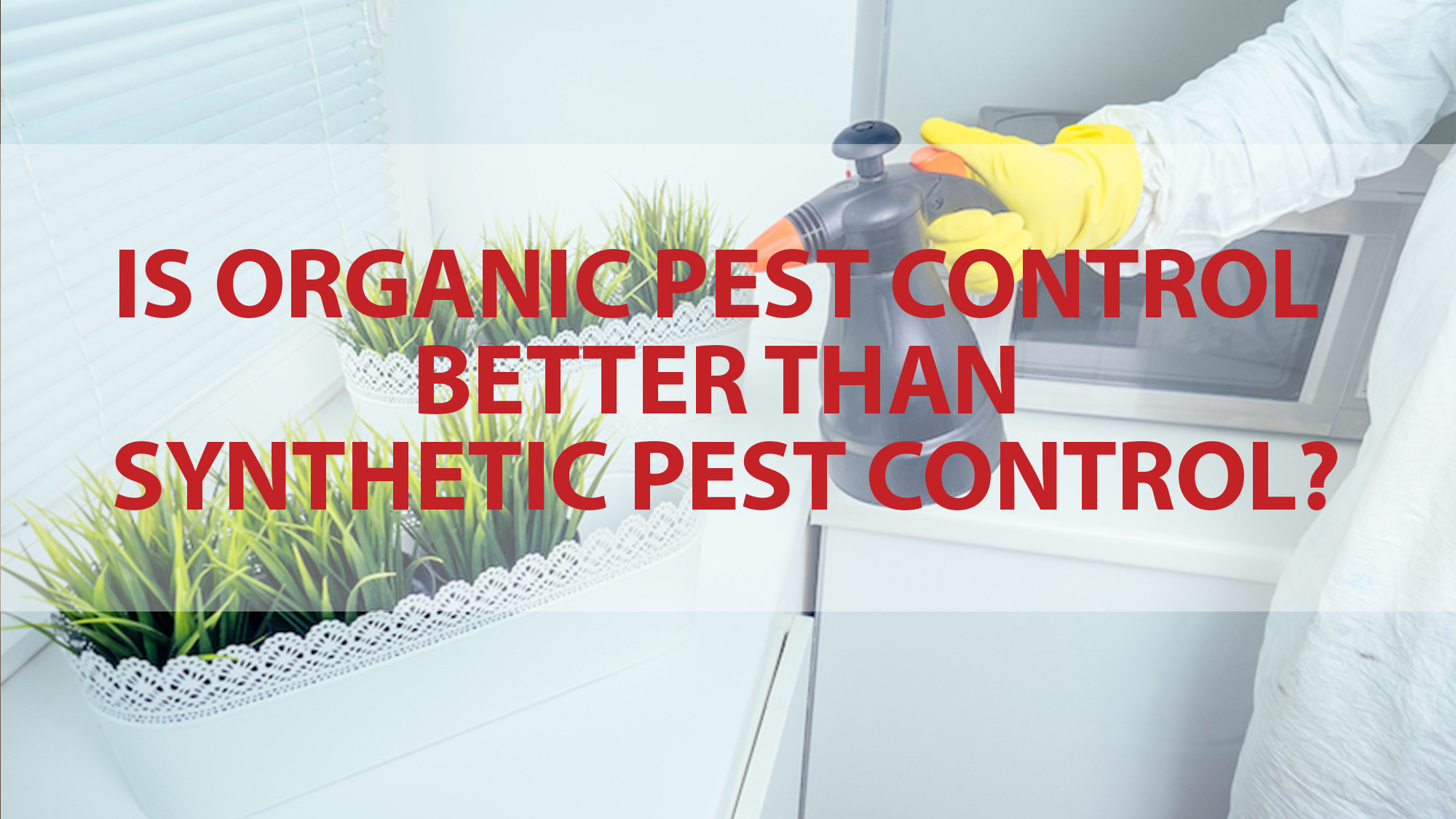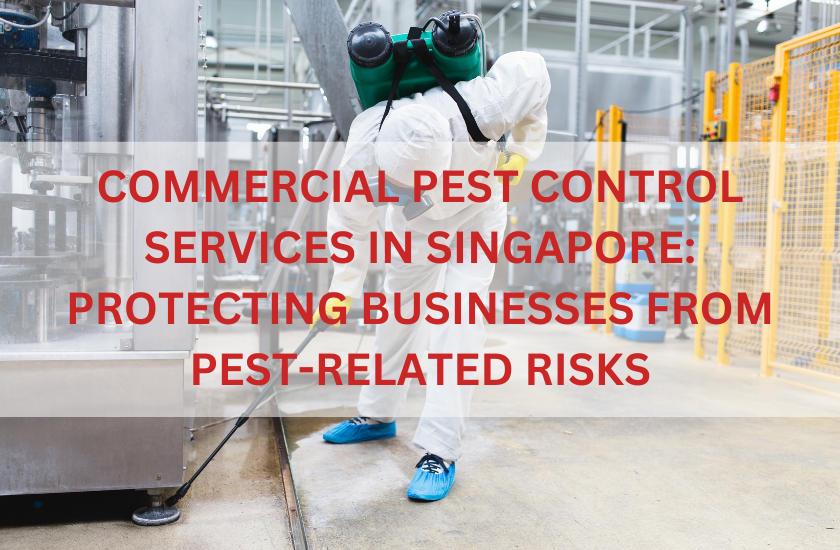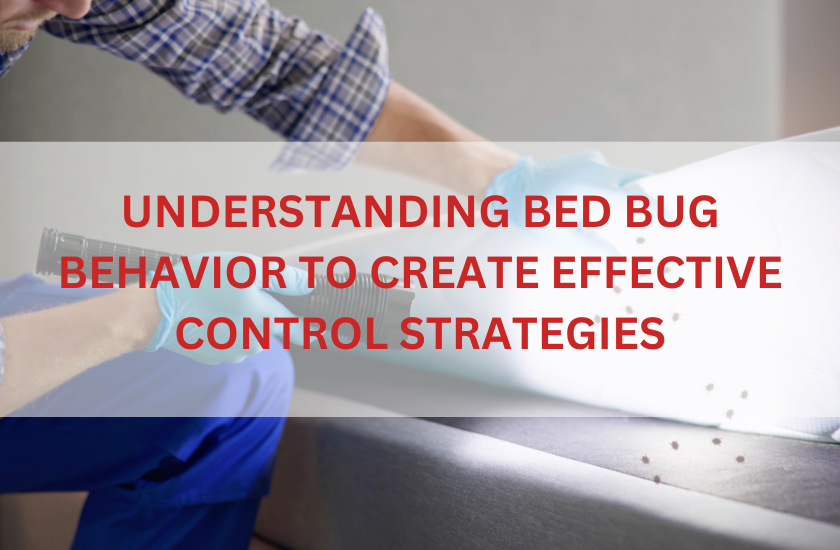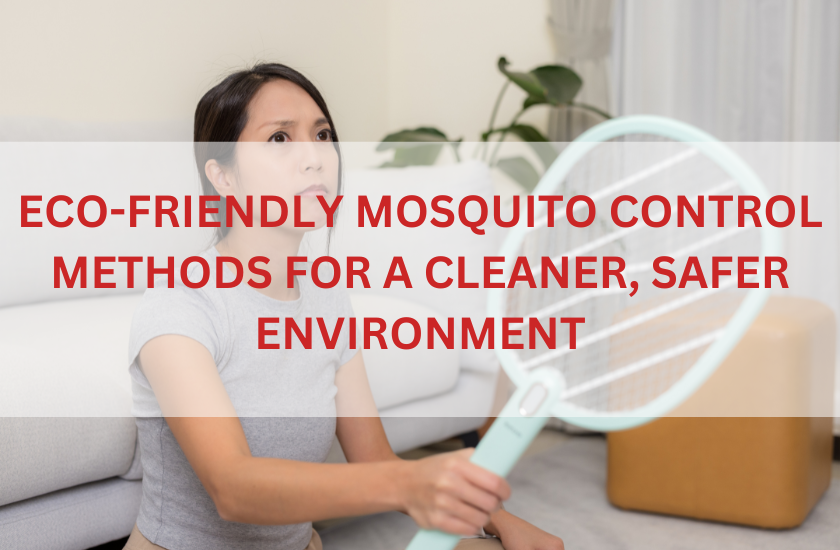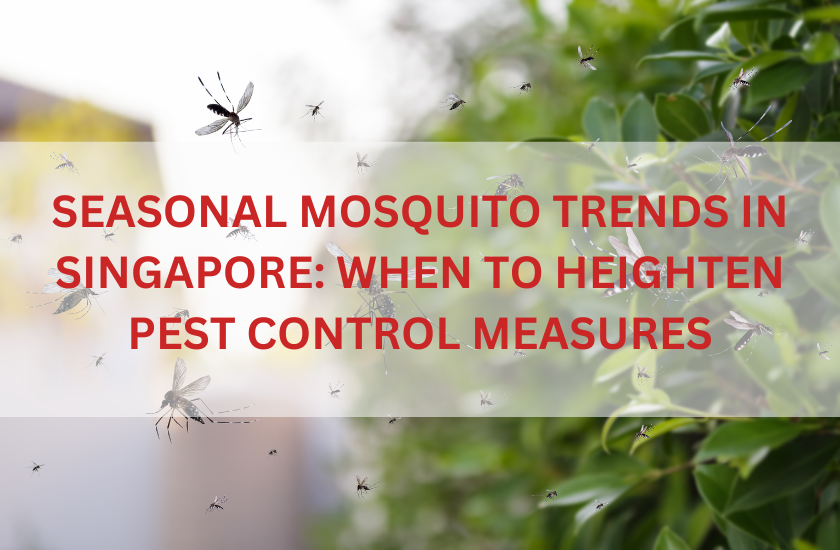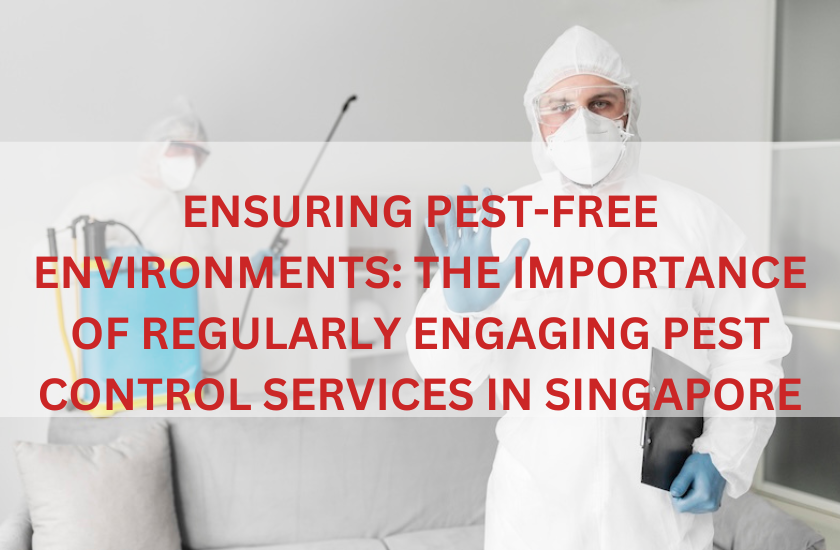In need of an effective pest control product but not sure which one to use? Well, with so many options, it is normal to be confused. In addition to different types and brands, there is also the choice between organic and synthetic pest control.
There’s a lot of hype about going green, so you must be wondering if choosing natural pest control would be safer and better. In this article, you can learn about the advantages and disadvantages of using organic pest control and synthetic pest control. You can then make your own decision. After all, you should choose a pesticide that best suits your needs.
What Is Organic Pest Control?
In recent years, people have become more environmentally friendly. Many even deem organic and natural products as safer and healthier. The pest control industry adjusted to this changing mindset by introducing organic choices.
Organic pest control refers to using pesticides derived from natural sources such as animals, plants, or minerals from the ground. Generally, these chemicals are broken down by soil microbes or weather quite quickly.
Examples of organic pest control include neem oil and pyrethrins. Diatomaceous earth, consisting of a high silica concentration, is the most commonly used natural pest control. Organic pest control can also involve using natural substances such as lime sulfur and pyrethrum, salt and vinegar, and soaps.
These substances are made of non-synthetic ingredients and have slight or no chemical alterations. In other words, organic pest control is an environmentally conscious method of tackling weeds, insects, and pests.
What is Synthetic Pest Control?
A pest control product can be labelled as either natural or synthetic. This classification is based on how the product is extracted and synthesised. A synthetic pest control product is usually produced artificially in a laboratory. It is also commonly known as conventional pesticides.
Synthetic pest control refers to pest control products formulated by a chemical process or by a procedure that chemically alters a compound extracted from naturally occurring sources such as animal, plant, or mineral sources. Examples of synthetic pesticides include Glyphosate, Deet, Acephate, Propoxur, Boric Acid, Metaldehyde, Diazinon, DTT, Dursban, and Malathion.
Even though synthetic pest control is considered harmful, this may not always be the case. Certain synthetically produced pesticides can be safe, too, if used in the right way and all required precautions are taken. On the other hand, even if it is considered natural, certain chemicals can be found in almost everything. This is why you must weigh the pros and cons of both kinds of pest control before making a choice.
Pros and Cons of Organic Pest Control and Synthetic Pest Control
Benefits of Using Organic Pest Control
The most obvious advantage of choosing organic pest control over synthetic methods is that it is a more environment-friendly option. As natural means are used to produce these products, you can reduce your carbon footprint by choosing the organic option. Many natural pest control products are also better for soil quality and plant growth as plants will not be exposed to harmful chemical toxins.
Not only is this option better for the garden and overall environment, but it is also safer for your health as there is less chance of contamination.
Non-synthetic pest control options are best suited for homes with kids and pets. Moreover, pests are less likely to develop resistance against natural products, thus helping you attain long-term effectiveness.
Limitations of Using Organic Pest Control
Indeed, there are many benefits of choosing natural pest control. However, organic pest control options are not offered by many companies. In addition to low availability, the cost you will bear for this eco-friendly option is slightly higher. But it’s a small price we pay for the benefit of our family.
Most of these products do not use any harsh ingredients. As a result, some natural pesticides may be less effective or are slower to act compared to synthetic pest control. Hence, you might not notice an immediate effect on the pest population in your house. To reach the maximum effectiveness of organic pest control, you must know how to use it properly. And, maybe use it a few times to get the desired results.
Benefits of Using Synthetic Pest Control
The best thing about synthetic pest control is that they are readily available. No matter where you are, you will be able to find them in a shop near you. In addition to being widely available, synthetic pesticides are also fast-acting in terms of effectiveness. All you have to do is apply or spray them in the targeted area and watch them exterminate or deter pests quickly.
Moreover, synthetic pest controls are quite strong. So you do not have to worry about their efficacy. As long as you buy a reputed brand of pest control product, the pest problem at hand will be solved. If that is not enough to convince you, synthetic pest control is also cost-effective. If you are on a budget, this is your best bet. You can even choose between multiple products without worrying about exceeding your budget.
Limitations of Using Synthetic Pest Control
Chemicals used in certain synthetic pest control products can pose a serious threat to you and your surroundings. Synthetic chemicals in pest control products have been linked with severe health complications. If you choose this option, wear protective gear to avoid getting any chemicals on your eyes and skin. It can also be harmful to breathe in synthetic chemicals.
Synthetic pest control can also be harmful to the environment. They could contaminate the soil and nearby water sources. Your pets and little children at home are not safe from these chemical-based products either.
Even though synthetic pest control offers fast relief from pests, pests could develop resistance to these products over time. In fact, some pests can even attain complete tolerance to certain chemicals.
Conclusion
So, should you use synthetic or organic pest control? Generally, people view organic pest control as a safer option, but this may not always be true. Whether synthetic or natural, a pest control product can still be toxic.
For best results, embracing Integrated Pest Management (IPM) is recommended. IPM refers to employing multiple methods to control pest populations instead of limiting yourself to only natural or synthetic pesticides. For instance, you could rely on habitat alteration, exclusion methods, or mechanical traps to reduce your reliance on pesticides.
IPM includes other pest control practices so that pest control products can be used more sparingly. The aim should be to use pesticides in small quantities, responsibly and in targeted areas. So next time you get pest control done on your premises, look for a pest control service provider who uses the techniques and products best suited to manage your pest infestation.

